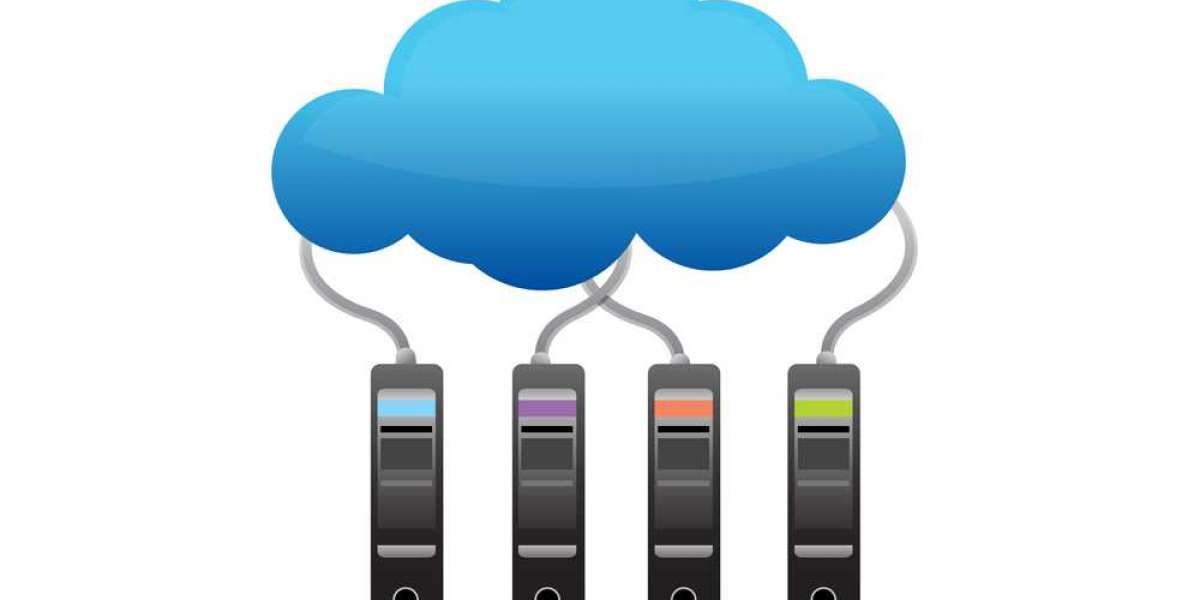In today's digital age, data has become the lifeblood of businesses and individuals alike. Whether you're running a small business or managing personal documents and memories, protecting your data is paramount. That's where cloud backup solutions come into play. In this blog, we will delve into everything you need to know about cloud backup solutions and how they are closely intertwined with cloud infrastructure.
What are Cloud Backup Solutions?
First and foremost, let's define cloud backup solutions. Simply put, these are services that allow you to securely store copies of your important data on remote servers, often hosted in data centers. This remote storage, known as the "cloud," provides a safeguard against data loss due to hardware failures, human errors, or disasters. Cloud backup solutions offer a seamless way to keep your valuable information safe, accessible, and recoverable when needed.
The Role of Cloud Infrastructure
Cloud backup solutions rely heavily on cloud infrastructure to function efficiently. Cloud infrastructure comprises a network of remote servers, data storage, and various software components, all managed by cloud service providers. These providers offer scalable and reliable infrastructure that powers cloud backup solutions.
Key Benefits of Cloud Backup Solutions
Now, let's explore the advantages of using cloud backup solutions:
Data Security: Cloud backup solutions employ robust encryption techniques to protect your data during transmission and storage. This ensures that your information remains confidential and secure.
Automatic Backups: One of the significant advantages of cloud backup solutions is their ability to automate the backup process. This means your data is continuously backed up without manual intervention, providing peace of mind.
Accessibility: Cloud backup solutions enable you to access your data from anywhere with an internet connection. This flexibility is invaluable, especially for remote work and on-the-go access.
Scalability: Cloud backup solutions are scalable, allowing you to adjust your storage capacity as your needs grow. You pay only for the resources you use, making it a cost-effective option.
Types of Cloud Backup Solutions
Cloud backup solutions come in various flavors to cater to different needs:
File-level Backup: This type of backup focuses on individual files and folders, making it ideal for personal use or small businesses with limited data.
Image-based Backup: Image-based backups capture entire system snapshots, including operating systems and applications. They are suitable for businesses with more extensive data requirements.
Hybrid Backup: Hybrid backup solutions combine on-site and cloud backups for added redundancy. This approach ensures data availability even in the event of a local hardware failure.
Continuous Data Protection (CDP): CDP solutions offer real-time data replication, minimizing data loss to just seconds or minutes. They are crucial for businesses where every second counts, such as financial institutions.
Choosing the Right Cloud Backup Solution
While cloud backup solutions offer numerous benefits, selecting the right one for your needs is crucial. Here are some key factors to consider:
- Data Volume: Evaluate the amount of data you need to back up and choose a solution that can handle your storage requirements.
- Security: Ensure that the cloud backup solution uses encryption and complies with industry security standards.
- Cost: Understand the pricing structure of the solution and choose one that fits your budget. Keep in mind that paying for only what you use can be cost-effective.
- Recovery Options: Check the recovery options provided by the solution, including file restoration, system recovery, and disaster recovery.
- Support and Maintenance: Consider the level of customer support and maintenance offered by the service provider.
Challenges and Considerations
While cloud backup solutions offer tremendous benefits, it's essential to be aware of potential challenges and considerations:
Internet Dependency: Cloud backup solutions rely on an internet connection, so a slow or unreliable connection can hinder data backup and retrieval.
Data Transfer Speed: Uploading large volumes of data to the cloud can be time-consuming, so consider the initial data seeding options provided by your chosen solution.
Data Recovery Time: The time it takes to restore data from the cloud may vary depending on the volume of data and your internet connection speed.
Conclusion
In conclusion, cloud backup solutions play a crucial role in safeguarding your valuable data, whether you're an individual or a business. They rely on the robust foundation of cloud infrastructure to provide secure, automated, and scalable data protection.
However, it's essential to choose the right cloud backup solution that aligns with your specific needs, budget, and recovery expectations. While challenges exist, the benefits far outweigh the drawbacks, making cloud backup solutions a smart choice for data protection in today's digital landscape.
Moreover, as technology evolves, cloud backup solutions continue to advance, offering even more innovative features and capabilities. So, if you haven't already considered implementing a cloud backup solution, now is the time to explore the options available and ensure your data remains safe and accessible whenever you need it.



